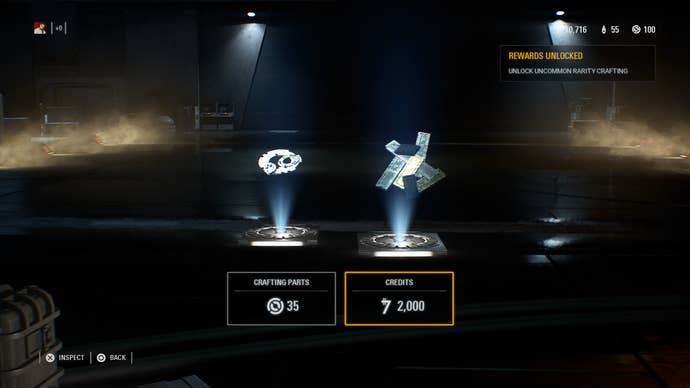Washington State Senator Introduces Bill to Investigate if Video Game Loot Boxes are Gambling
"It is unacceptable to be targeting our children with predatory gambling masked in a game with dancing bunnies or something."
This article first appeared on USgamer, a partner publication of VG247. Some content, such as this article, has been migrated to VG247 for posterity after USgamer's closure - but it has not been edited or further vetted by the VG247 team.
A Washington state senator has joined states like Hawaii and nations like Belgium by introducing a bill that could investigate and regulate loot boxes and microtransactions in video games.
The News Tribune reported that Washington State Senator Kevin Ranker introduced a new bill this month in Legislature that will attempt to find out whether or not loot boxes and other monetization practices in games are a form of gambling that prey on children. Ranker is asking state officials and game developers to work together on the inquiry.
"What the bill says is, 'Industry, state: sit down to figure out the best way to regulate this,"' said Ranker. "It is unacceptable to be targeting our children with predatory gambling masked in a game with dancing bunnies or something."

Dancing bunnies or no, this is the second proposal in the US that's asking about loot boxes in video games. Last year following the Star Wars Battlefront 2 loot box scandal, Chris Lee, a Democrat lawmaker in Hawaii, proposed a ban on the sale of games with loot boxes to consumers under 21. Like Ranker, Lee suggested that video games hide behind their entertainment design to work as "a Star Wars-themed online casino designed to lure kids into spending money."
As Rolling Stone points out, the issue of whether or not video game loot boxes are gambling can severely complicate the sale of video games. As it stands, the ESRB has a rating system that at most prevents anyone under the age of 17 from purchasing a video game without an adult. However, if video game loot boxes are classified as gambling, that would make them illegal for purchase to anyone under the age of 18 or 21 depending on the state. The ramifications of such a decision could upend the industry.
However, loot boxes are still being pursued by game developers. A recent report suggested that EA is thinking hard about the future of microtransactions in games like Anthem, a sentiment shared by other major companies. In the meantime, one in 10 video game developers are working on games with loot boxes in their next game according to the Game Developers Conference survey.








